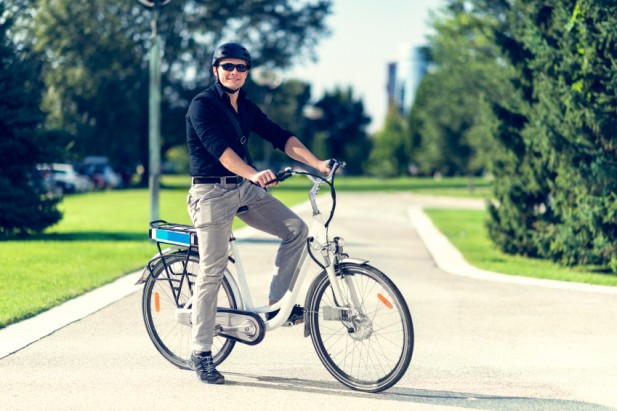Get the Facts: Electric Bicycles

Electric bicycles are ever increasing in popularity. For those who might be unfamiliar with them, electric bicycles are motorized bicycles that can look like conventional bicycles, scooters, or limited-speed motorcycles. They can go by many names – e-bikes, e-scooters, electric scooters, and power assisted bicycles to name a few.
As with traditional bicycles, riders of e-bikes must follow traffic laws under the Highway Traffic Act and may ride on most roads and highways. Some exceptions include riding:
• on certain provincial highways, such as the 400 series, the QEW, the Queensway in Ottawa, or the Kitchener-Waterloo Expressway
• on municipal roads, including sidewalks, where bicycles are banned under municipal by-laws
• on municipal roads, sidewalks, bike paths, bike trails, or bike lanes where e-bikes are prohibited
The Ontario Ministry of Transportation confirms that e-bikes must have:
• steering handlebars
• working pedals
• an electric motor not exceeding 500 Watts
• a maximum speed of 32 km/hr
• a maximum weight of 120 kg
• a permanent label from the manufacturer in both English and French stating that the e-bike conforms to the federal definition of a power-assisted bicycle
The Ministry confirms that riders of e-bikes need not have driver’s licenses, vehicle permits or license plates. However, riders must be 16 years or older, must wear an approved bicycle or motorcycle helmet, and must keep the e-bike in good working order. Passengers can only ride on e-bikes if the e-bike is designed to carry a passenger, if the passenger is at least 16 years of age, and if the passenger wears a bicycle or motorcycle helmet.
Where riders can get themselves into some trouble is when they opt to modify their e-bikes. For example, removing the pedals from the e-bike would render it an illegal vehicle; it would no longer be considered an e-bike because it would not comply with the Highway Traffic Act definition of a power-assisted bicycle. Comparably, modifying the vehicle to go faster than 32 km/hr or to weigh more than 120kg would render it no longer an e-bike as well. Any such modifications could lead to ticketing for operating a motor vehicle without proper licensing, registration and insurance.
Riders of e-bikes must also obey drinking and driving laws. An e-bike is considered a motor vehicle under the Criminal Code of Canada and riding an e-bike while intoxicated can lead to charges for impaired driving.
